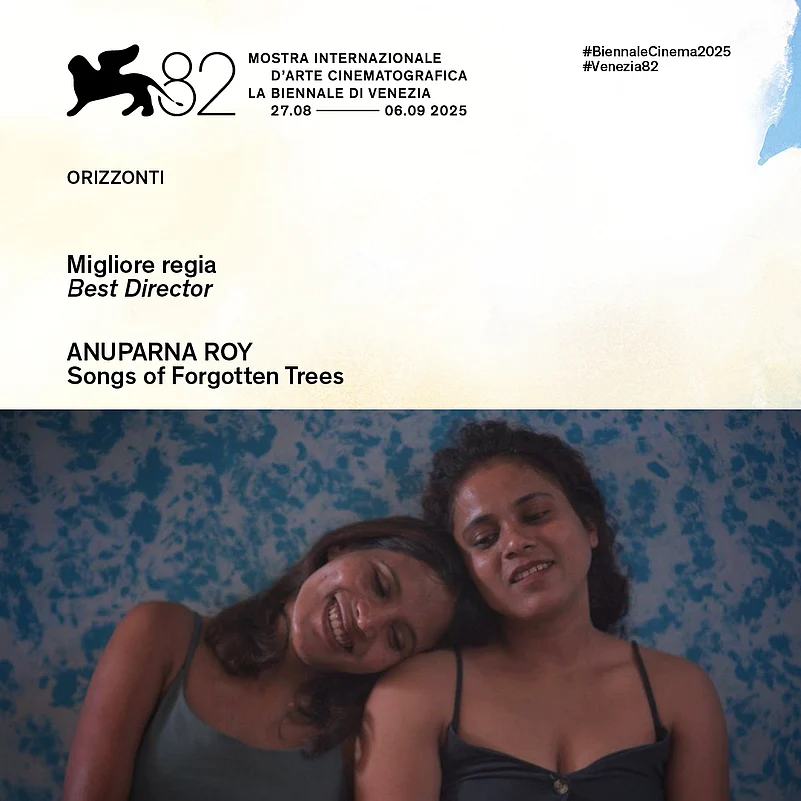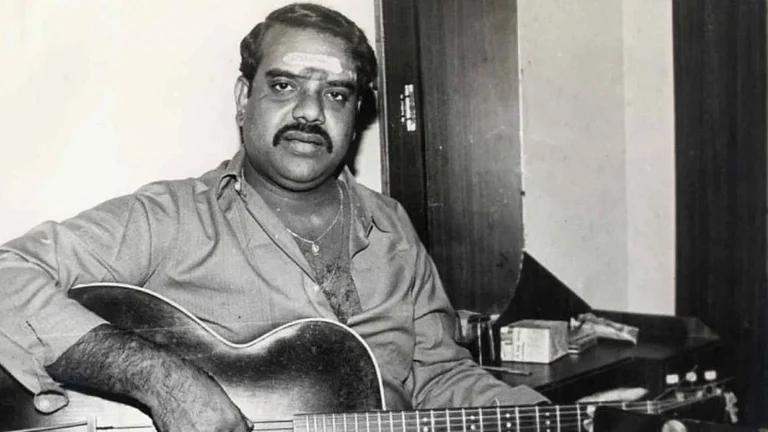
Anuparna Roy scripts history by being the first Indian to win Best Director in the prestigious Orizzonti competition at Venice Film Festival
Songs of Forgotten Trees is her debut feature
The film follows two female roommates in Mumbai
At the Venice Film Festival, Anuparna Roy has scooped up the Best Director prize in the Orizzonti competition, where her debut feature, Songs of Forgotten Trees, premiered to a packed house. It marks the first time any Indian has won Best Director in this parallel competition strand. The last win by an Indian in this category was by Chaitanya Tamhane, who won Best Film for Court (2014).

Palme d’Or winner Julia Ducarnou, presiding over the Orizzonti jury, announced the win, with co-juror, Argentine film critic Fernando Enrique Juan Lima handing the prize to Roy. Visibly emotional, Roy thanked Anurag Kashyap, her producers for backing a film that didn’t fit in typical boxes, the cast and crew. She continued, “Each one there in my hometown, in my country, I want to dedicate this award to them".
Concluding her speech, she drew attention to taking responsibility for Palestine, the genocide and horror that has spared not even children.
“Every child deserves peace, freedom and liberation, and Palestine is no exception,” she affirmed. When there was ovation, Roy insisted she didn’t want claps. She stressed that even if she upset her country, it was imperative she say what she ought to.
Circling two female roommates in Mumbai, Thooya (Naaz Shaikh) and Swetha (Sumi Baghel), Songs of Forgotten Trees is as drawn from Roy’s personal memories and experiences as it is from her observations.
The Outlook review of the film says, "Roy isn’t interested in a conventional narrative set-up, opting instead for moments and impressions, things left unspoken and un-negotiated. She keeps Songs of Forgotten Trees concise. At just over an hour, the film isn’t going for sprawling thematic ambition. The pivot remains few threadbare emotional throughlines that grow to bind the roommates. Wisely and refreshingly, Roy’s screenplay abstains from overly sweetening, cloying the relationship Thooya and Swetha develop. Instead, moments of laughter, teasing camaraderie and deep empathy are juxtaposed with hurt and strife both unleash on the other. The film grows on us most when it lets the women meet in mutual kindness."




























